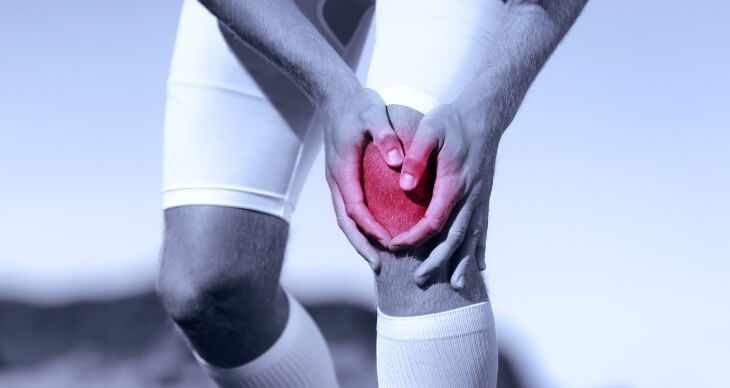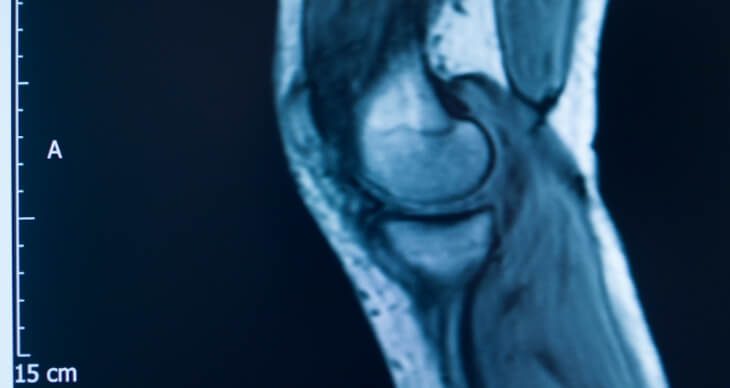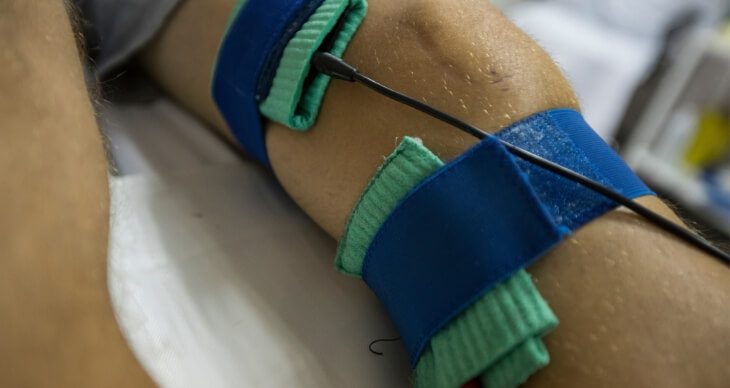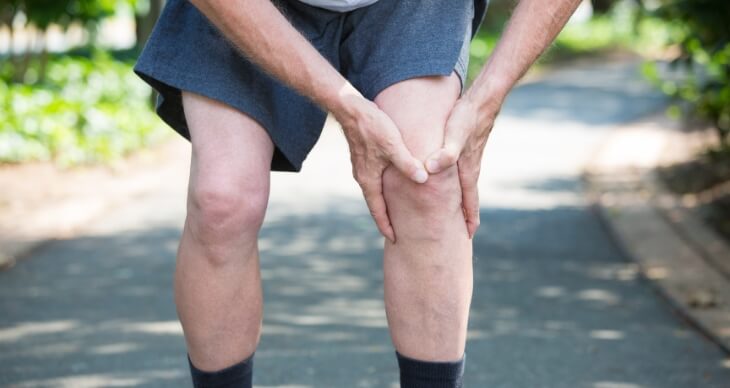
ACL Injury: Best Treatments and Symptoms
The Anterior Cruciate Ligament, commonly known as the ACL, serves as a critical stabilising structure within the knee joint. ACL injury ranks among the prevalent afflictions impacting athletes, especially those engaged in sports requiring abrupt change-of-direction or pivoting manoeuvres.
Upon sustaining an ACL injury, athletes frequently describe hearing a distinct ‘pop’ or ‘crack’ emanating from their knee. This alarming sound is often the first indication of the injury, leading to immediate pain, swelling around the joint, and the inability to continue playing.
The suddenness with which these symptoms manifest underscores the severity of ACL injuries and highlights the need for prompt and effective ACL injury treatment and understanding of ACL injury symptoms to mitigate long-term damage and facilitate a return to peak performance.
How does ACL injury occur?
Commonly, ACL injury occurs when an athlete ‘cuts’ or changes direction abruptly. This movement causes the knee to fall inwards, placing stress on the ACL. This type of injury indicates that the muscles that stabilise the knee (including the thigh and calf muscles) are not strong enough to support the knee and protect the ACL during rapid change of direction manoeuvres.
As such, the best way to rehabilitate an athlete after ACL injury, and to prevent injury recurrence, is to progressively strengthen the muscles around the knee. Additionally, it is important to also improve the balance, control, and endurance of these muscles. Sometimes, in addition to physiotherapy rehab, surgery may be appropriate to increase the stability of the knee after an ACL injury (however, this is not always necessary).
Understanding ACL injury symptoms, seeking ACL injury treatment, and adopting prevention strategies are crucial steps toward recovery and maintaining knee health.

What are the symptoms of an ACL injury?
An ACL injury can present a range of symptoms, signalling to the athlete that something significant has occurred within the knee joint. Initially, the injury might be marked by a loud “pop” or a feeling that the knee has “given out” beneath them. This initial indication is often followed by a variety of symptoms that can vary in intensity depending on the severity of the injury.
- Pain and Tenderness: The onset of pain is immediate, localised around the knee joint, and can range from mild to severe. Tenderness to touch around the area is also common.
- Swelling: Swelling typically occurs within the first few hours after the injury, contributing to knee stiffness and a reduction in range of motion.
- Loss of Full Range of Motion: Difficulty in fully extending or bending the knee is often reported due to swelling and pain.
- Instability: A sensation of the knee giving way or being unable to support your weight, especially when trying to twist or turn.
- Decreased Strength: Inability to use the full strength of the leg, especially in movements that require pushing off or pivoting.
- Audible Pop: Many individuals report hearing a distinct pop at the time of injury, which is a hallmark sign of an ACL tear.
These symptoms not only signal the presence of an ACL injury but also guide the diagnostic process that follows. If you suspect you’ve suffered an ACL injury, seeking immediate medical attention is essential for a comprehensive assessment and to discuss the potential need for ACL injury treatment. Proper diagnosis and early treatment are key to a successful recovery and minimising the risk of further damage or recurrence.
How to diagnose an ACL injury?
Diagnosing an ACL injury typically involves a combination of clinical examination and imaging tests. Initially, a healthcare professional will conduct a thorough physical examination to assess knee stability, pain, swelling, and range of motion. Special tests like the Lachman test or the anterior drawer test may be used to evaluate the integrity of the ACL.
To confirm the diagnosis and assess the extent of the injury, imaging tests such as an MRI (Magnetic Resonance Imaging) are often recommended. MRI provides detailed images of soft tissues, including the ACL, and can help identify any associated injuries to the knee, such as damage to other ligaments, cartilage, or menisci.
In some cases, X-rays might be taken to rule out bone fractures. This comprehensive approach ensures an accurate diagnosis and forms the basis for an effective treatment plan.

Is ACL a serious injury?
To gain a clear understanding of your injury, during your first assessment, your physiotherapist will ask you questions about your symptoms, how the injury occurred, and your medical history and involvement with sporting and other physical activity. Your physio will then assess your knee joint and surrounding structures. This assessment may involve:
- Feeling the knee joint to identify any swelling or tenderness
- Assessing the strength, endurance and control of the muscles around the knee
- Checking for any damage to the ligaments within the knee (including the ACL)
- Assessing strength, balance, and control of the knee during activities such as walking, squatting, jogging, and jumping
What is the best treatment for ACL injury?
Based on the findings of the assessment, your physio will develop an individualised treatment plan and exercise program for you, to help you achieve your rehab goals (whether that’s to get back on the sporting field or to get back to playing with your grandkids). Some key aspects of your treatment may include:
Early Management (0-2wks)
- Soft tissue release, icing and compression, to reduce pain and swelling.
- Restoration of joint range with gentle exercises.
- Advice and education regarding load-management through your knee joint, and avoidance of non-optimal movement patterns.
Exercise Program Phase 1 (0-8wks)
- Optimisation of the way your knee moves during activities such as walking, jogging, and squatting.
- Low-level strengthening exercises for the muscles that stabilise the knee (calf, thigh, hip muscles)
- Low-level balance and control exercises
- Gentle jogging drills
Exercise Program Phase 2 (2-6 months)
- Moderate-level strengthening exercises
- Moderate-level balance and control exercises
- Increased volume of jogging drills
- Begin jumping and landing exercises
Exercise Program Phase 3 (6-9 months)
- High-level strengthening exercises
- High-level balance and control exercises
- Complex jumping and landing exercises
- Change-of-direction and high-speed sports-specific drills
- Return to Training/Sport (9-12 months)
Can an ACL heal without surgery?
An ACL injury’s capacity for healing without surgery significantly varies based on the injury’s extent, the individual’s lifestyle, and the knee’s overall stability. Partial ACL tears offer a greater likelihood of healing with conservative treatment methods such as physiotherapy and the use of knee braces.
These approaches aim to bolster the muscles around the knee, thereby enhancing stability and compensating for the ligament’s compromised integrity. Such non-surgical strategies may suffice for individuals with partial tears or those engaged in less physically demanding activities, allowing them to maintain an active lifestyle without undergoing surgery.

Can you fully recover from an ACL tear? How long does it take?
Most patients will notice significant reductions in pain and discomfort over the first few weeks of rehab and will also demonstrate steady improvements in knee control and strength over the first 1-2 months after injury.
Your physio will work closely with you along each stage of your rehab journey, to help you achieve your goals. With excellent compliance with physiotherapy and exercise programs, most people can return to doing the things they love, including high-level sports, within 9-12 months.
How long can I walk after ACL?
The ability to walk after an ACL injury can vary significantly from one individual to another, depending on the severity of the injury, the presence of other knee injuries, and how soon rehabilitation starts.
Initially, you may need to use crutches or a knee brace for support, and walking without assistance might not be advisable until your physiotherapist evaluates your condition. As part of the rehabilitation process, you will gradually begin to walk short distances as your strength and stability improve.
Can I live a normal life during my rehab?
Living a “normal” life during ACL rehab is possible, but adjustments will be necessary, especially in the early stages of recovery. Your activity levels and the types of physical activities you can engage in will be limited to protect your knee and promote healing.
However, with a well-structured rehabilitation program, you can gradually return to many of your pre-injury activities. The key is to follow your rehabilitation program closely and communicate openly with your healthcare provider about your progress and any concerns.
Why is ACL recovery so long?
ACL recovery is a lengthy process because the ligament needs time to heal properly after an injury or surgery, and the surrounding muscles and tissues must be carefully and progressively strengthened to support the knee joint effectively. This process is crucial to restore full function, prevent further injury, and ensure the long-term health of your knee.
Additionally, the gradual progression through different phases of rehabilitation—focusing on reducing pain and swelling, restoring range of motion, strengthening, and eventually returning to sport-specific activities—ensures a comprehensive recovery that addresses all aspects of knee health and functionality.
If you need help with pain or immobility to get you moving again or need a tailored exercise program, book in for your treatment with one of our physios via 1300 012 273 or head to our website and book a session at your nearest clinic.
